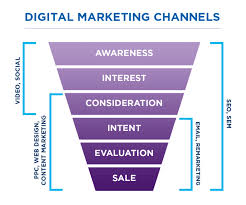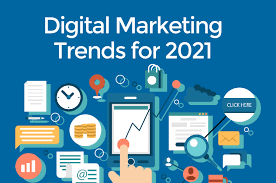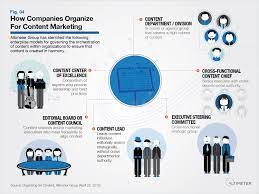The Power of Email Marketing
Email marketing remains one of the most effective tools in a marketer’s arsenal. With the rise of social media and other digital channels, some may overlook the impact that a well-crafted email campaign can have on engaging and converting audiences.
Building Relationships
One of the key strengths of email marketing is its ability to nurture relationships with your audience. By delivering relevant and valuable content directly to their inbox, you can establish trust and credibility over time. Personalised emails that address the recipient by name and cater to their interests are more likely to resonate with them.
Driving Conversions
Email marketing is also a powerful tool for driving conversions. Whether you’re promoting a new product, offering a discount, or inviting recipients to an event, emails can be tailored to encourage action. By including clear calls-to-action and tracking performance metrics, you can measure the success of your campaigns and make data-driven decisions for future strategies.
Increasing Brand Awareness
Consistent communication through email helps reinforce your brand identity in the minds of your audience. By maintaining a cohesive visual style and tone across your emails, you can strengthen brand recognition and differentiate yourself from competitors. Sharing valuable content such as blog posts, case studies, or customer testimonials can further position your brand as an industry leader.
Best Practices for Email Marketing
- Segmentation: Divide your email list into segments based on demographics, behaviour, or preferences to deliver targeted content.
- A/B Testing: Experiment with different subject lines, content formats, and send times to optimise engagement rates.
- Maintain Compliance: Ensure that your emails comply with data protection regulations such as GDPR to build trust with recipients.
- Analyse Results: Monitor key performance indicators like open rates, click-through rates, and conversion rates to evaluate the effectiveness of your campaigns.
In conclusion, email marketing continues to be a valuable tool for engaging audiences, driving conversions, and increasing brand awareness. By leveraging its potential through strategic planning, personalisation, and analytics, businesses can unlock the full power of email as part of their digital marketing strategy.
Five Key Advantages of Email Marketing: Cost-Effective, Targeted, Measurable, Brand-Strengthening, and Engaging
Challenges of Email Marketing: Overcoming Spam Risks, Visual Limitations, Deliverability Issues, and Standing Out
- Risk of being marked as spam
- Limited visual impact
- Dependence on email deliverability
- Difficulty in standing out
Cost-effective
Email marketing offers a cost-effective solution for businesses to connect with a wide audience when compared to traditional marketing channels. With minimal overheads and the ability to reach a large number of recipients instantly, email campaigns provide an efficient way to deliver targeted messages and promotions without the high costs associated with print or broadcast advertising. This affordability makes email marketing a valuable tool for businesses looking to maximise their marketing budget and achieve measurable results.
Targeted messaging
Email marketing’s ability to deliver targeted messaging is a game-changer in the realm of digital communication. By tailoring content to recipient demographics and behaviour, businesses can create personalised and relevant messages that resonate with their audience on a deeper level. This level of customisation not only enhances engagement but also increases the likelihood of conversions as recipients feel understood and valued. The power of targeted messaging lies in its capacity to deliver the right message to the right person at the right time, ultimately driving stronger connections and results for brands.
Measurable results
Email marketing offers a significant advantage in its ability to provide measurable results through detailed analytics. By tracking performance metrics such as open rates, click-through rates, conversion rates, and more, businesses can gain valuable insights into the effectiveness of their email campaigns. This data allows marketers to identify what resonates with their audience, refine their strategies accordingly, and ultimately improve the outcomes of future campaigns. The ability to measure and analyse results empowers businesses to make data-driven decisions that maximise the impact of their email marketing efforts.
Brand reinforcement
Email marketing plays a crucial role in brand reinforcement by consistently delivering a unified message, visuals, and content with every email sent. By maintaining a cohesive brand identity across all communications, businesses can strengthen brand recognition and loyalty among their audience. This consistency helps differentiate the brand from competitors and builds trust with recipients, ultimately solidifying the brand’s position in the minds of consumers.
High engagement
Email marketing offers a significant advantage in terms of high engagement due to the direct delivery of emails to the recipient’s inbox. This direct communication channel increases the likelihood of interaction as emails are personalised and tailored to the recipient’s preferences. By reaching audiences directly in their inbox, businesses can capture attention, drive engagement, and foster meaningful relationships with their target audience, ultimately leading to higher conversion rates and increased brand loyalty.
Risk of being marked as spam
One significant drawback of email marketing is the risk of being marked as spam. When email campaigns are ineffective or when businesses bombard recipients with excessive emails, there is a high probability of recipients flagging these emails as spam. This action not only diminishes the chances of reaching the intended audience but also jeopardises the sender’s reputation. Once marked as spam, future emails from the sender are more likely to be filtered out or sent directly to the recipients’ spam folders, hindering the effectiveness of email marketing efforts. It is crucial for businesses to carefully consider their email frequency and content to avoid falling victim to this conundrum.
Limited visual impact
One significant drawback of email marketing is its limited visual impact compared to platforms like social media. Due to constraints on design and interactivity within email formats, the ability to create visually engaging content is restricted. This limitation can hinder the overall user experience and may lead to decreased engagement from recipients who are accustomed to more visually stimulating content on other digital channels. As a result, businesses must carefully consider how to maximise the impact of their emails through compelling copywriting and strategic use of visuals within the constraints of the medium.
Dependence on email deliverability
Dependence on email deliverability poses a significant challenge in email marketing. Factors such as spam filters and technical issues can hinder the successful delivery of your emails to recipients’ inboxes, thereby limiting the reach and effectiveness of your campaigns. Despite crafting compelling content and implementing targeted strategies, the unpredictability of email deliverability remains a constant concern for marketers, highlighting the importance of monitoring deliverability metrics and refining practices to enhance the chances of reaching the intended audience.
Difficulty in standing out
In the realm of email marketing, a significant challenge lies in the difficulty of standing out amidst the sea of messages flooding individuals’ inboxes on a daily basis. With the sheer volume of emails vying for attention, it becomes increasingly tough to capture and maintain the interest of recipients. Crafting compelling and distinctive content that cuts through the noise and resonates with the audience is essential yet daunting in a landscape where competition for visibility is fierce. Marketers must navigate this conundrum by employing creative strategies and personalisation techniques to ensure their messages are not lost in the deluge of emails clamouring for attention.










